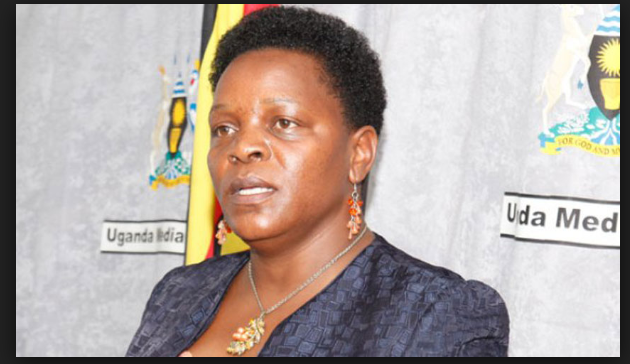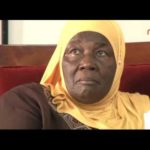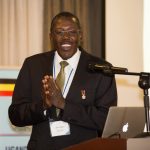BY Hon. Mutuuzo Peace Regis
On Thursday October 24, 2019, Uganda joins the rest of the world to celebrate the International Rural Women’s Day. The Day was established by the United Nations General Assembly and is observed around the world on 15th October as a platform for the rural women to raise their voices, air out their challenges, share their achievements and for stakeholders to give greater recognition of rural women’s contribution to development of their communities.
Commemorating the Day provides us with the opportunity to remind State and non-State Actors and other stakeholders to develop Programmes that enhance women’s ability to increase production, access services and social protection, be economically empowered and increase their participation in development Programmes.
Some of the challenges faced by rural women and girls include; Gender based violence manifested through high levels of teenage pregnancies, child marriages, forced marriages, Female Genital Mutilation (FGM) among the Sabiny in Sebei region and the Pokots of Karamoja and trafficking in persons;
Unfair distribution of productive resources including access to and control to land, access to agricultural inputs, water, transport, access to affordable credit and appropriate technologies that reduce their workload. With limited productive resources at their disposal, women and girls therefore struggle to fend for large families including orphans and vulnerable children.
Limited access to services and opportunities – low education levels and access to training, inadequate care and support, lack of legal support and poor health;
The heavier workload including unpaid care work continue to constrain women’s participation in decision-making and politics. Rural women make up over a quarter of the world population and 43% of women in the global agriculture labour force. They till the land to ensure food security for their communities. Seventy six percent (76%) of the extremely poor women live in rural areas.
Uganda’s economy is basically agricultural with over 70 per cent of persons engaged in agriculture, majority of whom are women. It is therefore important to ensure their access to sustainable infrastructure, services and social protection in order to contribute to a reduction in world hunger and poverty, as a critical strategy for the success of the new sustainable development agenda.
There is also need to value and celebrate the great contribution of rural women and girls to national development as well take deliberate interventions to empower rural women and girls if Uganda is to achieve its vision of a modern and prosperous country by 2040. In this regard, the NRM Government has prioritized the empowerment of rural women and girls as critical actors in the economic growth and sustainable development agenda of the country.
Ladies and Gentlemen, 2019 marks 11 years since International Rural Women`s Day was recognized. The National celebration will be held at Arapai, in Soroti District Local Government under theme: “Rural Women’s Economic Empowerment through Savings and Affordable Credit.”
Among the numerous interventions undertaken by Government to empower rural women to enable them contribute effectively to household wealth creation is the Uganda Women Entrepreneurship Programme (UWEP) which has been implemented in all Districts and Municipalities with the Ministry of Gender, Labour and Social Development as the lead implementation agency.
The design and vision of the programme was informed by the constraints that women face in attempting to establish businesses and these include among others; limited access to affordable credit, limited technical knowledge and skills for business development, limited access to markets as well as information regarding business opportunities. These constraints affect rural women at a much greater magnitude. To-date, UWEP has funded 10,502 women projects across the country, directly benefiting 131,390 women.
The Programme has specifically registered notable benefits including, but not limited to; (i) Increased access to affordable credit by women. In this regard, 131,390 women have accessed credit to initiate, manage and expand their enterprises. (ii) Financial inclusion of women. To date, 10,502 women groups have group bank accounts that were opened to access UWEP funds. (iii) Acquisition of assets. The women that have benefited from the Programme have been able to acquire assets such as domestic animals (59.7%), mattresses (54.5%), phones (51.9%), and beds (28.3%). In addition, the Programme has enabled women to acquire assets such as land (1.1%) and houses (0.8%). (iv) Women have reported increased incomes as evidenced by their ability to pay school fees, access to health services and improved nutrition. (v) 131,390 women have opportunities for direct selfemployment and over 587,755 dependents have benefit through multiplier effects at household and community levels. (vi) Enhanced knowledge and skills for women. 131,390 supported women have acquired skills in various disciplines such as, basic financial management, record keeping, entrepreneurship, group dynamics and marketing among others.
At a macro-level, the Programme is making a contribution towards enhancing import substitution and export promotion through financing of projects in grain milling, fruit drying and processing, shear butter processing, wine making, liquid soap making, agricultural feed production, metal fabrication, food processing, tie and dye, manufacturing of leather products such as shoes, and bags among others. Infrastructure development, particularly road infrastructure, is critical to empowering rural women.
Government has undertaken heavy investments in building trunk and rural roads to facilitate improved access to markets by women, trading opportunities, farm inputs and consumer goods all of which are critical ingredients for women and youth empowerment. The Beijing Platform for Action (BPfA) spells out actions governments should take to improve participation of women in the economy to “Promote and strengthen micro-enterprises, new small businesses, cooperative enterprises, expanded markets and other employment opportunities and, where appropriate, facilitate the transition from the informal to the formal sector, especially in rural areas”.
The questions of security around the market areas, connections to their homes, and the time of resuming the market operations and street lighting for the areas where the markets are located have been answered by the enforcement of security right from the grassroots level. Government has established security units right from village to national level to be able to effectively respond to any concerns arising in an area, and this has shown in the peace dividends enjoyed by Ugandans over the last three decades.
Uganda’s electricity sector has also registered growth in the available generation capacity from 359.5 MW since the liberalization of the electricity sector in 1999 to 601.1 MW in 2018. This growth is predominantly from renewable sources, which are most used by women and girls in rural areas. This growth eliminated load-shedding and doubled the access to electricity from 7% to 15%. In the education sector, significant improvements have been made in the accessibility and quality of girls’ education in Uganda. The female literacy rate increased from 45 percent in 1991 to 68 percent in 2014. Much of this progress was a result of the 1997 implementation of free, universal primary and secondary education. With one in every four girls aged 15-19 years have begun childbearing, keeping girls in school is one way of supporting them to delay pregnancy.
A World Bank study shows that an extra year of primary school education boosts girls’ future wages by 10% –20%, and an extra year of secondary school adds 15 – 25 per cent. This goes to underscore the importance of UPE, USE and Post Primary Education and Training. Giving women extra one and half (1.5) points for public university entrance (affirmative action) can’t be overemphasized.
I would like to assure the country that Government, development partners and community development organisations are sparing no effort in ensuring that the current shortfalls in accessibility and quality in education are bridged. Other Government Programmes to support women move out of poverty include the Social Assistance Grants for Empowerment (SAGE) Programme, the Community Based Rehabilitation (CBR) program, Operation Wealth Creation (OWC), the Youth Livelihood Programme (YLP), and the Community Driven Development (CDD) Programmes among others.
We believe that the celebrations in Soroti will amplify rural women`s voices and provide a platform for dialogue. As the Ministry of Gender, Labour and Social Development, we are concerned over the emerging human trafficking – young girls are “sold” at the human market at Arapai market, and on Thursday, which is a market day there, I intend to make an on-spot inspection of the market and also speak about the ills of such actions. The event will involve a marching process through Arapai town to the venue, an exhibition by rural women with enterprises and lots of entertainment. As I conclude, I wish to take this opportunity to invite you all to the Celebrations in Arapai-Soroti this Thursday. Our appreciate goes to UN Women, Soroti District Local Government and other organisations that have supported this day. I thank you.
For God and My Country
The writer is the Minister of State for Gender and Cultural Affairs








[…] READ MORE FROM ORIGINAL SOURCE […]